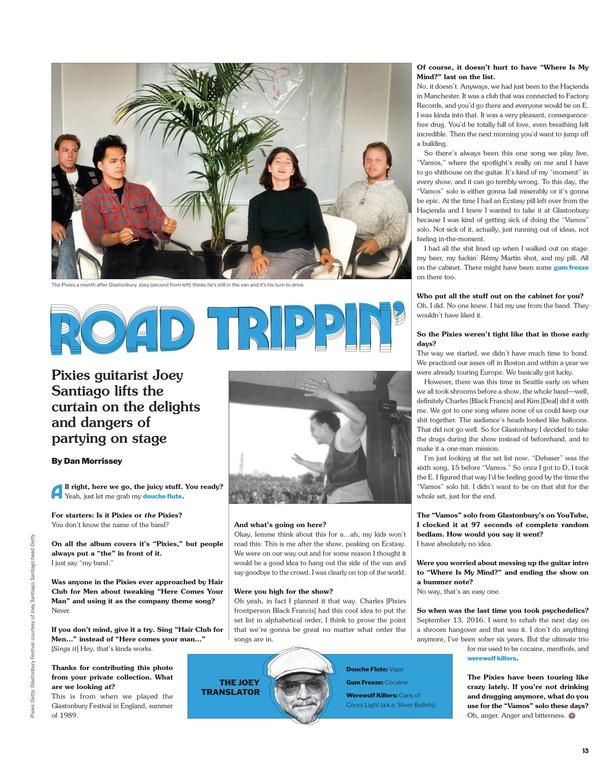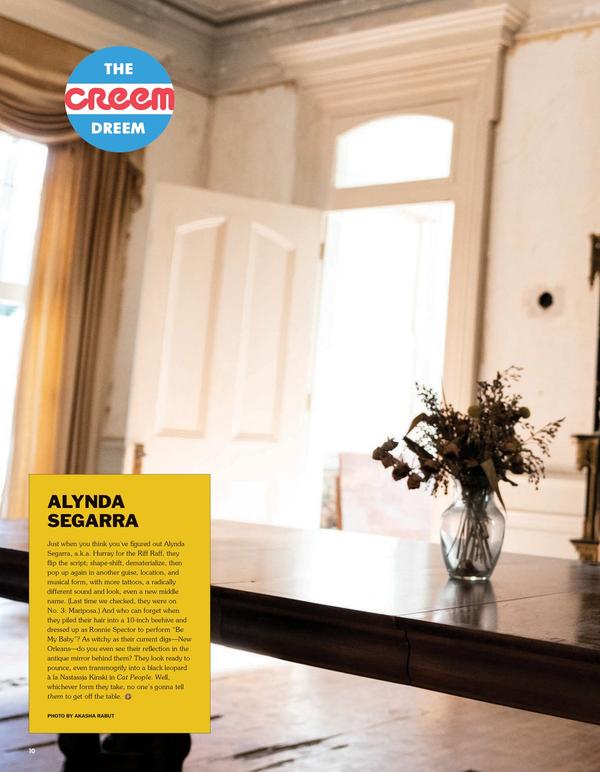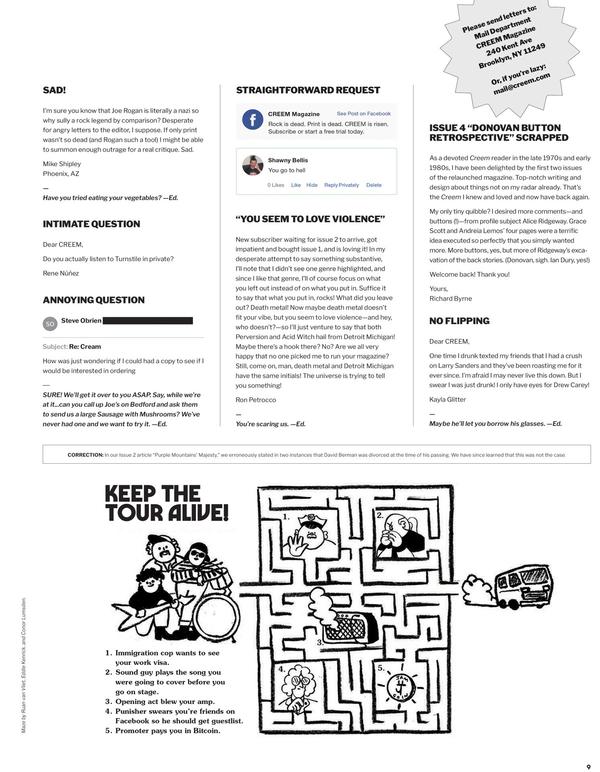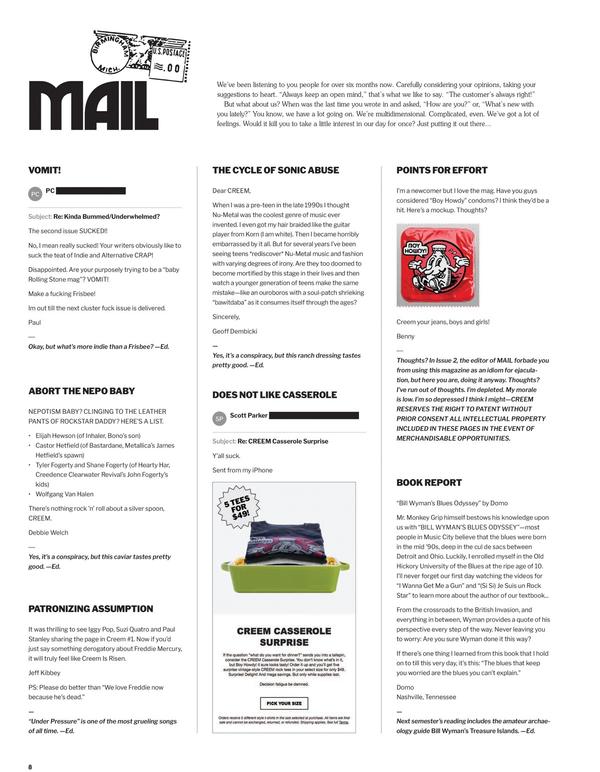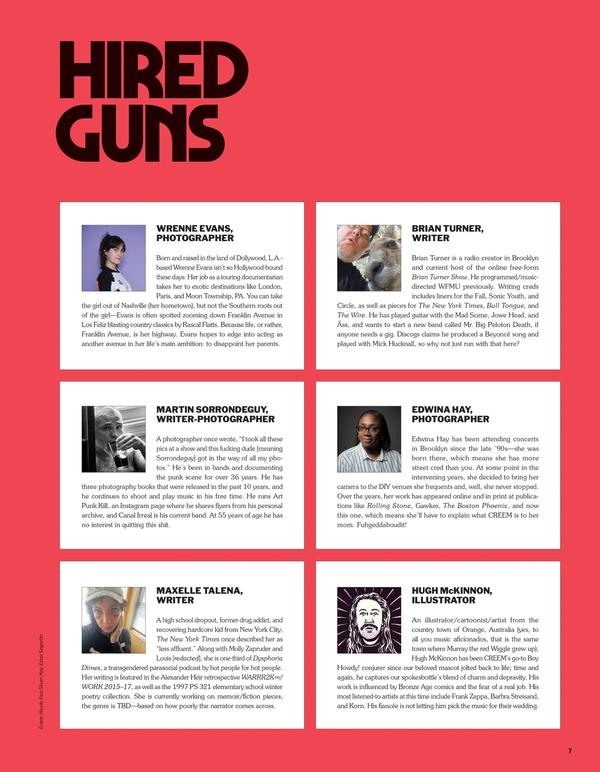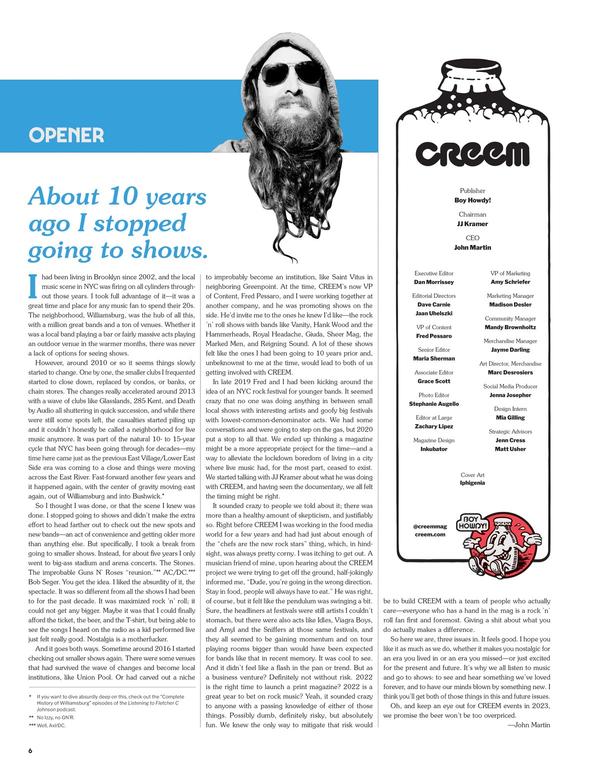DON’T LOOK BACK IN ANGER
Remembering Britpop, the genre that was super into remembering stuff.
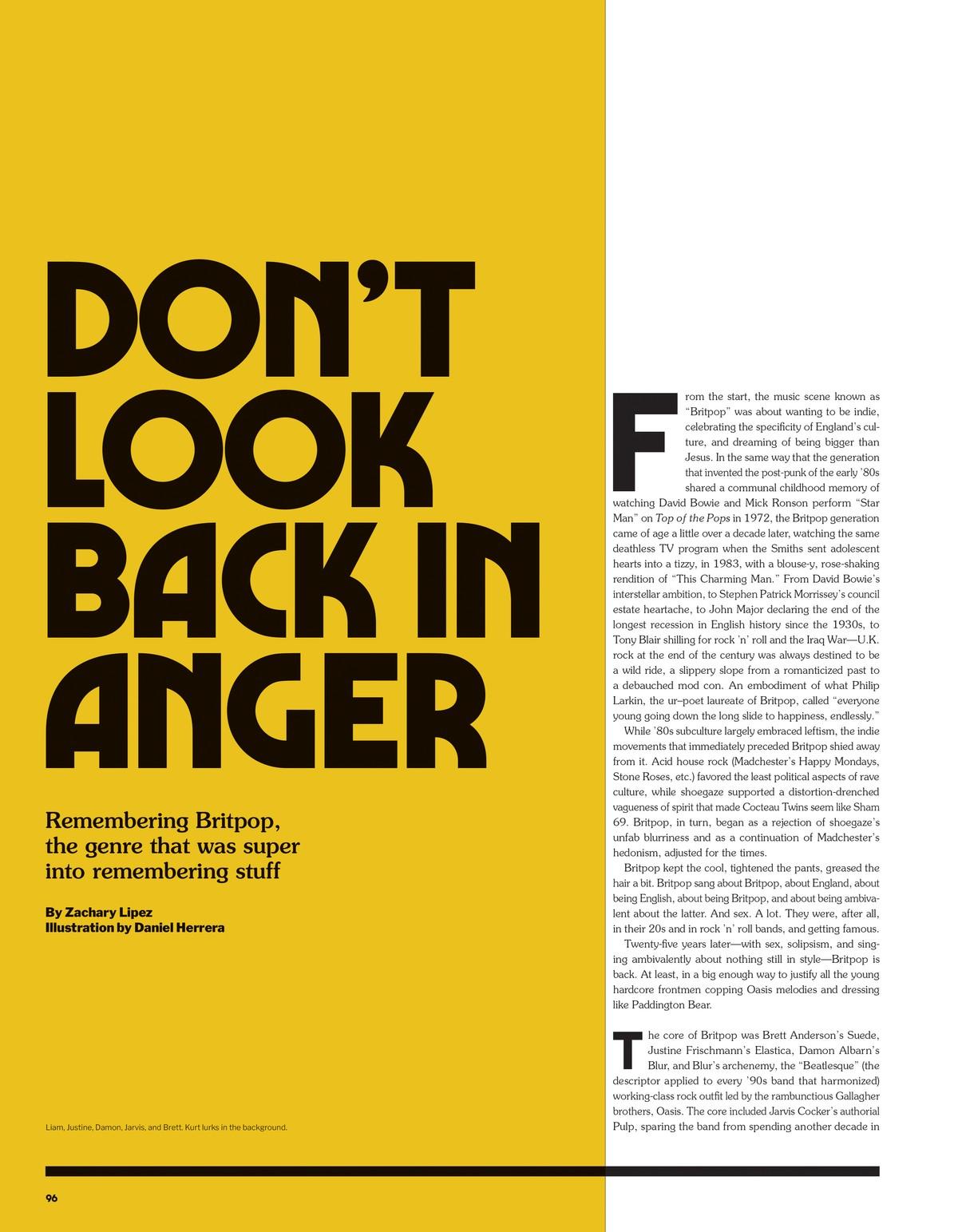
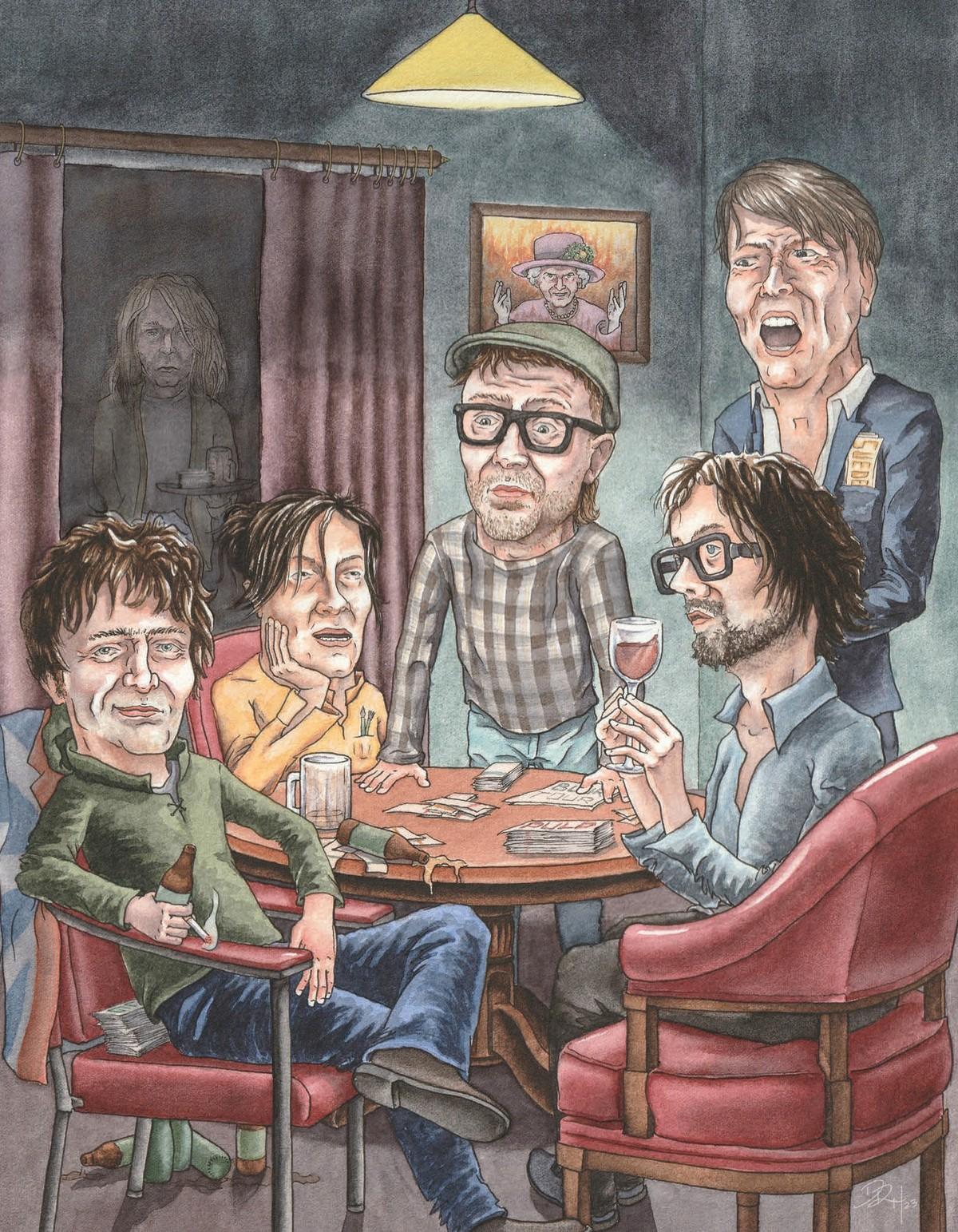
From the start, the music scene known as “Britpop” was about wanting to be indie, celebrating the specificity of England’s culture, and dreaming of being bigger than Jesus. In the same way that the generation that invented the post-punk of the early ’80s shared a communal childhood memory of watching David Bowie and Mick Ronson perform “Star Man” on Top of the Pops in 1972, the Britpop generation came of age a little over a decade later, watching the same deathless TV program when the Smiths sent adolescent hearts into a tizzy, in 1983, with a blouse-y, rose-shaking rendition of “This Charming Man.” From David Bowie’s interstellar ambition, to Stephen Patrick Morrissey’s council estate heartache, to John Major declaring the end of the longest recession in English history since the 1930s, to Tony Blair shilling for rock ’n’ roll and the Iraq War—U.K. rock at the end of the century was always destined to be a wild ride, a slippery slope from a romanticized past to a debauched mod con. An embodiment of what Philip Larkin, the ur-poet laureate of Britpop, called “everyone young going down the long slide to happiness, endlessly.”
While '80s subculture largely embraced leftism, the indie movements that immediately preceded Britpop shied away from it. Acid house rock (Madchester’s Happy Mondays, Stone Roses, etc.) favored the least political aspects of rave culture, while shoegaze supported a distortion-drenched vagueness of spirit that made Cocteau Twins seem like Sham 69. Britpop, in turn, began as a rejection of shoegaze’s unfab blurriness and as a continuation of Madchester’s hedonism, adjusted for the times.


